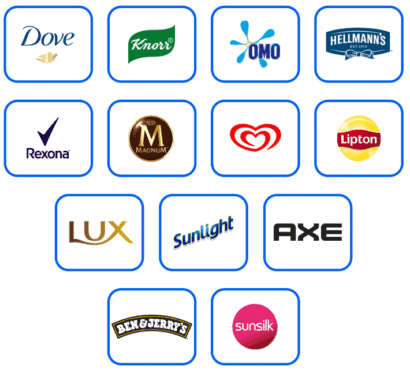I’ve been monitoring Unilever (LSE: ULVR) shares closely this year. The stock’s traded below £40 nearly every single day since October 2021. Until this slump, the Unilever share price had only fallen below this level a handful of times over the past five years — and never for more than a couple of months at a time.
Right now, I think there are signs the FTSE 100 consumer goods titan could be on the cusp of a sustained recovery. At £38.49 today, I’m considering adding Unilever shares to my portfolio. Here’s why.
Recent difficulties
There’s been notable criticism of the company’s management from some of its major investors in recent months. Nick Train, co-founder of fund manager Lindsell Train, slammed Unilever’s “pedestrian” financial performance.
He was joined by Fundsmith founder and CEO Terry Smith who expressed exasperation with what he thinks is an “obsessive” focus on woke issues and sustainability. These comments have dented confidence in the stock.
Criticism has intensified since Unilever’s botched £50bn takeover attempt for GlaxoSmithKline‘s consumer health arm earlier this year. GSK rejected the offer, which represented a 10% premium over the business’s current value, suggesting a 25% premium would be more appropriate.
News of the failed bid raised eyebrows among investors and analysts alike over the company’s strategy. Some questioned the benefits of the proposed deal.
Unilever’s troubles don’t end here. Last week, Ben & Jerry’s filed a lawsuit against its parent company to block the sale of its Israeli business to a local licensee. Unilever has been negatively impacted by Ben & Jerry’s year-long boycott of Israel. Several US states have divested substantial amounts in state pension funds from the company in response.
A resilient FTSE 100 stock
Despite the risks, I think brighter days could be ahead for Unilever shares. In my view, the group’s strong pricing power positions it to deal with the high inflation haunting many economies.
CEO Alan Jope has promised the company will take “aggressive action” on pricing to keep pace with cost pressures. I view the 8.3% hike in prices in Q1 as evidence it’s focused on protecting profit margins.
The latest quarterly results contained some good numbers. I’m encouraged by underlying sales growth of 7.3%, albeit volumes declined by 1%. In addition, turnover increased 11.8% and the business maintained its quarterly dividend. Unilever also started the first €750m tranche of a €3bn share buyback programme.
I like the stock’s defensive qualities and impressive brand portfolio that provides the company with diversified revenue streams. The business owns 13 brands that are valued at over €1bn, collectively representing over half its turnover.

In total, there are over 400 Unilever brands. In my opinion, brand recognition and consumer loyalty are invaluable attributes if the company is to remain competitive as the cost-of-living crisis puts a strain on household budgets.
Would I buy Unilever shares today?
Despite disappointing investors for half a decade, I think Unilever shares look cheap currently. The 3.76% dividend yield is also handy. I believe it’s likely the stock may rise above £40 in the near future. Accordingly, I’d buy while the shares trade at a bargain rate.








